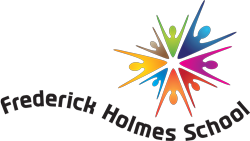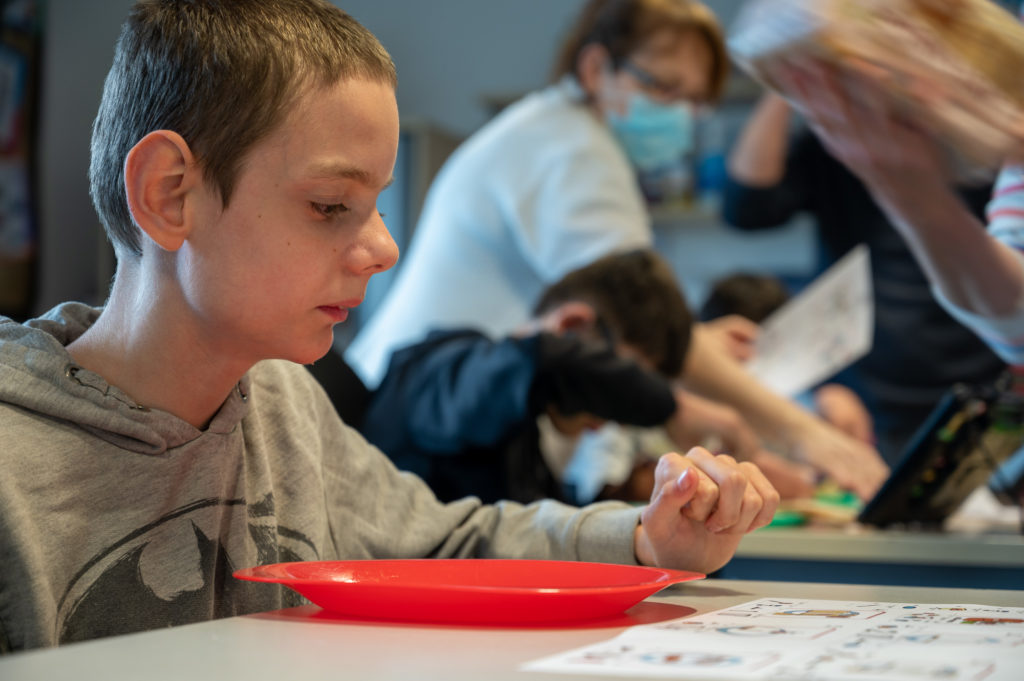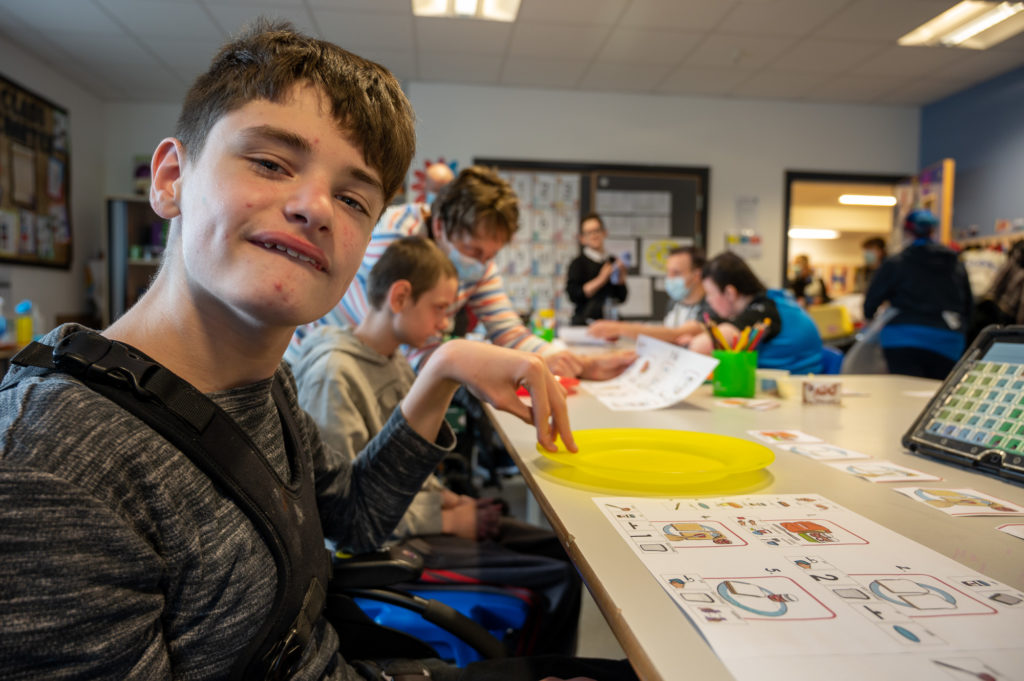Basic Skills
English and Communication
Through thorough assessment of a child’s functional communication, staff are able to identify and implement appropriate strategies to develop communicative intent and access early literacy skills through carefully structured teaching. Communication and interaction with others is a priority when planning teaching and learning outcomes for individuals. Early communication, reading and writing skills are supported by the use of the Engagement Model, EYFS, Phonological Awareness and a Systematic Synthetic Phonics programme. The aim is to ensure that each pupil can use the communication skills they develop to enrich their lives and achieve the greatest independence as possible; for some this may be the ability to eye point to a desired object or person whilst others may learn to read independently.
Our sensory classes experience and explore books through a range of sensory stories. These sensory stories allow pupils to work on their personalised targets around a familiar theme or experience. All classes enjoy a daily story time.
Our curriculum classes are taught reading and writing in English lessons, as well as through the teaching of functional skills for reading and writing, pre-reading skills, phonological awareness and phonics. Pupils who are able to access formal phonics teaching follow Rocket Phonics, a full systematic synthetic phonics programme that is appropriately adapted to meet the physical needs of our children and young people.
Speech and Language Therapists support the teaching and development of communication skills through the use of speech therapy and low- tech and high -tech aids.
All subject curriculum plans, including English, are available here.
Examples of strategies used at Frederick Holmes School:
Mathematics
Mathematics at Frederick Holmes School is taught as a practical subject with multi-sensory resources used to support learning in real life contexts throughout the curriculum classes.
We implement a bespoke mathematics curriculum that has been written to develop the skills and knowledge of pupils with severe learning difficulties. Working together across our Trust, with the other SEN schools, it has been refined deliver high quality teaching and learning opportunities for all pupils.
As students progress into Key Stage 4 and Post 16, they begin to develop their skills further in the context of real- life skills and preparation for adulthood. This includes the knowledge and application of money skills when shopping, measuring in cookery and horticulture and across other daily situations and work-related environments.
All subject curriculum plans, including Mathematics, are available here.
Strategies used to support the teaching of Mathematics include the use of Numicon (and Numicon Online), Numberblocks, guidance from the National Centre for Excellence in the Teaching of Mathematics (NCETM) and a wide range of age related and personalised software programmes.



